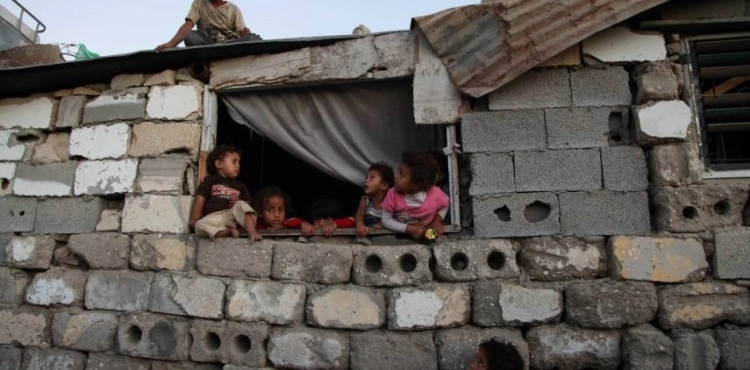Gaza _ Palestine News Network
Jimmy Mcgoldrake, humanitarian Coordinator in the Palestinian territories and Deputy Special Coordinator of the United Nations for the Middle East peace process, Nikolai Mladenov, spoke about the crisis in the Gaza Strip during 2018.
Mcgoldrake warned of the deteriorating situation in Gaza, with a severe fuel shortage as winter approached, explaining that the situation in Gaza had not improved, but had deteriorated dramatically.
Mcgoldrake told the United Nations news site: " We do not have enough fuel until the end of the year to operate hospitals and power plants to operate water and sewage networks, and we have appealed for $2 million to be able to get more fuel. "
On the main cause of the fuel crisis, he asserted that there were several reasons, saying: " We need money for emergency fuel generators for life-saving activities for hospitals and clinics. "
"The problem now with fuel for the Gaza power plant is the ability to inject fuel," Mcgoldrake said, noting that the United Nations is working with the parties to ensure the introduction of fuel, and as soon as it enters, it will suffice for six months.
He continued: " The fuel is available to the population for 4 hours a day, which is a terrible situation, winter is coming, so we try to add another 4 hours, to have electricity available for 8 hours a day, for people to live a semi-normal life. To enable students to perform their duties, to operate refrigerators and greenhouses and to ship mobile phones. And at the moment all these things are very difficult ".
McGoldrick spoke of one of the positions he was exposed to during one of his visits to Gaza: " I went to al-Razi paediatric hospital weeks ago. She went to the emergency department. When I was there, the power was cut off and the generator started working. I looked at my phone, and I found that the start of the generator took 55 seconds. During that time, doctors had to inject oxygen manually into the lungs of children on ventilator. It doesn´t happen for a day, but it´s a recurring situation every day.
There are people in hospitals who are unable to leave because of the lack of electricity in their homes, and they remain trapped in hospitals. In homes, life is paralysed by the lack of electricity only for limited hours. "
Call for reconciliation
Mcgoldrake said: " We in the humanitarian community always do the most. But the humanitarian situation always loses to politics. "
Added: " Politicians must sit at the negotiating table to look at reconciliation as the only option. We are struggling to continue humanitarian action, due to the funding crisis and growing needs, we call on politicians to come to the table and find a solution that enables citizens in Gaza and the West Bank to live a dignified life.
UNRWA crisis
The funding granted to UNRWA had been reduced by a major donor state, as a result of which a huge number of services had been discontinued. UNRWA was able to keep schools and clinics open and continue to provide food supplies to the population.
however: " However, other activities unrelated to UNRWA have received funding of 30 percent so far this year. "
wondered: " Why does Gaza have to confront this situation as it suffers from a humanitarian catastrophe? "followers " Because of this situation we need to reduce the services we offer to target more vulnerable people ".
Mcgoldrake said: " We cannot save lives and livelihoods as they should. Next year does not look better than this year, it seems that the funding situation and the geopolitical reality will remain in a bad situation similar to the current year, perhaps even worse. While funding remains the same or declining, needs are increasing. "
West Bank
As for the West Bank, McGoldrick said it was more about providing protection, rights and rights violations, adding "for example there is the Bedouin village of Khan al-Ahmar, which is at risk of demolition, and a court ruling has been issued. There are lots of demonstrations and activities to try to prevent it. "
He went on: " Khan al-Ahmar is a Bedouin village, there are 40 other similar villages in the West Bank. The inhabitants of these villages have been living in these areas for decades, relying on grazing for their livelihoods. If they are forcibly transferred from where they are stationed, I believe that this would be a violation of international law, as well as part of settlement expansion efforts. If this happens with all the Bedouin villages, the geographic contiguity of the state and the two-state solution will face challenges, because the West Bank will split in half as settlements from East Jerusalem continue to Jericho. "












